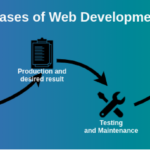
In today’s digital world, your website often serves as the first point of contact between your business and potential customers. Effective web design is not just about aesthetics; it plays a crucial role in shaping user experience, building trust, and driving conversions. Here’s why effective web design matters for your business success:
1. First Impressions Count
Your website is often the first interaction potential customers have with your brand. An attractive, well-organized site creates a positive first impression and encourages visitors to explore further. Conversely, a poorly designed site can drive users away, leading to missed opportunities.
2. Enhances User Experience (UX)
Good web design focuses on user experience. A well-structured site with intuitive navigation helps users find information quickly and easily. When visitors have a seamless experience, they are more likely to stay on your site longer and engage with your content, leading to higher conversion rates.
3. Builds Trust and Credibility
A professionally designed website fosters trust and credibility. Elements like a clean layout, high-quality images, and easy-to-read fonts contribute to a polished appearance. A trustworthy website reassures visitors that your business is legitimate and reliable, which is essential for converting leads into customers.
4. Improves Search Engine Optimization (SEO)
Effective web design incorporates SEO best practices, making it easier for search engines to crawl and index your site. Factors such as mobile-friendliness, fast loading times, and clean code contribute to better search rankings. Higher visibility in search engine results can drive more organic traffic to your site.
5. Supports Branding and Marketing Efforts
Your website is a critical component of your branding strategy. Consistent use of colors, logos, and messaging helps reinforce your brand identity. A well-designed site can effectively communicate your brand’s values and mission, making it easier for visitors to connect with your business.
6. Encourages Conversions
A key goal of web design is to convert visitors into customers. Effective design elements, such as clear calls-to-action (CTAs), strategic placement of forms, and user-friendly checkout processes, guide users toward desired actions. A well-optimized website can significantly increase conversion rates.
7. Adapts to Mobile Users
With a growing number of users accessing websites via mobile devices, responsive web design is essential. A site that adapts to different screen sizes ensures that mobile users have a positive experience, reducing bounce rates and increasing engagement across all devices.
8. Facilitates Easy Updates and Maintenance
An effective web design makes it easier to update and maintain your site. A well-organized content management system (CMS) allows you to add or modify content without extensive technical knowledge. Regular updates keep your site fresh and relevant, which is vital for user retention and SEO.
9. Improves Site Speed
A well-designed website is optimized for speed, which is critical for retaining visitors. Slow-loading pages can lead to frustration and increased bounce rates. By focusing on design elements that enhance speed, you create a more enjoyable user experience.
10. Provides Competitive Advantage
In a crowded marketplace, effective web design can set your business apart from competitors. A unique, engaging website can attract and retain customers, giving you a competitive edge. Investing in quality design demonstrates professionalism and commitment to customer satisfaction.
Conclusion
Effective web design is a vital aspect of your business’s online presence. It influences first impressions, user experience, and ultimately, conversion rates. By prioritizing effective design, you not only enhance your brand image but also drive business success.






